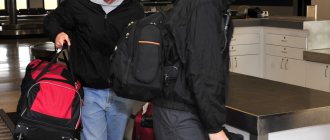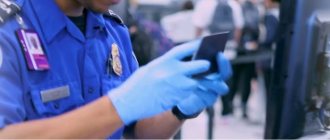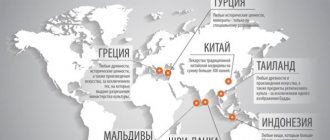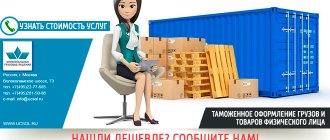Import is strictly prohibited
- drugs, strong medications without a prescription; a special ban is imposed on absinthe as a product containing a narcotic substance;
- weapons (except for sports and hunting);
- toxic substances;
- materials containing obscene texts, drawings, etc.;
- lottery tickets;
- some animals, in particular parrots, turtles, various species of monkeys;
- soil and biological materials;
- goods whose producing countries have been subject to economic sanctions.
In addition, some items are allowed to be carried only in checked luggage:
- any means of self-defense;
- straight razors and blades;
- tools, sports equipment;
- household flammable substances, aerosols;
- toxic or flammable substances, acids.
Objects with a strong magnetic field must not be carried on board the aircraft.
It should be noted that the rules of different airlines may differ; information must be clarified on the relevant websites.
Restricted categories:
- books and digital media: pirated copies are subject to confiscation and destruction, hard drives are subject to inspection;
- alcoholic drinks: persons over 21 years of age are allowed to import 1 liter of alcohol;
- without customs duties, you can import no more than 200 cigarettes, or 50 cigars, or 2 kg of smoking tobacco - also from the age of 21;
- It is allowed to transport gifts without paying duty in the amount of up to $100 under certain conditions: once within six months and with an expected stay in the country of more than 72 hours;
- if the import of gifts is not expected, then, as an alternative, it is allowed to bring personal goods worth $25, or your choice: 50 cigarettes, 100 cigars, 150 ml of alcohol or perfume.
Import restrictions
Let us consider in detail what products can be imported into the United States from Russia, how to declare them correctly, what is prohibited from being transported and why.
Alcohol and tobacco products
Strong alcohol is subject to declaration if its volume exceeds 1 liter, and low-alcohol drinks with a volume of more than 2 liters. Only persons over 21 years of age are allowed to import alcohol into the United States.
When transporting, it is important to properly package alcohol to maintain the integrity of the container.
Tobacco products are allowed to be transported duty-free through American customs in the following quantities:
- up to 200 cigarettes;
- up to 50 cigars;
- up to 2 kg of leaf tobacco.
Anything that exceeds the specified limit must be declared.
You can find out about the rules and regulations for the import and export of cigarettes from Russia on our website.
Money
US law includes information about how much money you can take with you across the American border. Up to $10,000, or an equivalent amount in another currency, is imported freely. If there is more money, they declare it.
Cash also includes
It is necessary to declare the amount upon departure if it is more than what was imported. If customs officers discover that the difference in imported and exported currencies is significant, inspectors will have questions. Documents remaining in the database will be sent for verification.
Specialists at international airports (Customs and Border Protection Officer) will help you understand the rules. You can fill out a declaration together with him. His services are free.
Present
If the value of the gift is more than $100, it must be declared.
Animals and biomaterials
A veterinary certificate with an official veterinary seal is a prerequisite for transporting birds and animals across the US border.
Sample veterinary certificate for transporting a parrot across the border
The veterinary control seal means:
- rabies vaccination;
- deworming;
- the presence of a tag on the collar with the address and telephone number of the pet owner.
The stamp is placed upon departure from the Russian Federation.
It is necessary to further clarify the rules for the entry of animals into a specific American city.
For example, when entering the Hawaiian Islands, quarantine is required. It lasts 120 days. The animal is microchipped according to the rules of the State of Hawaii Department of Agriculture.
Food
It is prohibited to import fish, perishable vegetables, fruits and other products with a limited shelf life.
Weapons and ammunition
Almost all types of weapons are prohibited for import:
- military weapons;
- ammunition of any type;
- knives with an automated blade opening mechanism;
- explosives and flammable substances.
A permit is required for a hunting rifle.
Medicines
Therapeutic drugs cannot be imported if they have not been certified by a US federal agency in the USA, or if there is no prescription for their use. You cannot import medical diagnostic devices or products.
Books and media
Materials with extremist information on electronic or printed media are prohibited.
Video: how to get through US customs
In order to freely transport a pet, you must have an international veterinary certificate confirming that it does not have infectious, viral or other diseases dangerous to human health.
Strict rules have been established for the import of food products: for example, all fruits and vegetables are subject to declaration. In addition, due to periodic outbreaks of various diseases, temporary bans on meat or chicken products are possible. There is also a list of products that are always prohibited from import.
To avoid being subject to a $10,000 fine, it is recommended that you list all food items you import.
What can you import
Personal belongings are freely imported into America. Individuals do not need to declare them under US customs regulations.
This:
- camera;
- tablet;
- laptop;
- mobile phone;
- watch;
- bottle of perfume;
- cloth.
All items must show signs of use.
A separate permit will be required for:
- art objects;
- antiques that are over 100 years old.
Personal items, as a rule, must be in a single copy. Anything that is not within reasonable natural use will have to be declared.
Products permitted for import
- flour and bakery products;
- chocolate confectionery, preserves, jams, honey;
- tea, coffee, juices (with an English list of ingredients);
- spices, sauces (except meat), vegetable oil;
- canned food, fish and seafood, fresh and processed;
- cheeses, dried fruits, peeled mushrooms, nuts;
- rice, noodles (pay attention to the country of origin);
- baby food.
The import of meat, dairy products, fruits, vegetables and seeds is either prohibited or requires special permission. In addition, restrictions periodically arise due to the sanitary situation, so these lists need to be clarified. Different states may have their own prohibitions, for example, the import of vegetables and fruits to Hawaii is prohibited in principle, this is due to the preservation of the unique nature of the islands.
Experienced travelers are advised to pay attention to the following points of the declaration:
- No. 11, subparagraphs a) and c): even if the passenger only has a can of coffee, it is necessary to mark it, otherwise you may be subject to a large fine;
- No. 13 – money in the amount of more than $10,000 must be declared, even if it is in different currencies or small change; When asked by a customs officer about the amount of money being imported, the answer must be accurate, otherwise undeclared money can cause a lot of trouble.
When traveling with a family, the declaration must be completed for the entire family.
They check customs declarations and also briefly interview passengers. In addition, they selectively inspect, including with the help of X-ray machines, luggage carried by passengers, and if there are grounds, they conduct a special inspection.
In relation to imported or exported cargo, customs inspectors, in addition, check the relevant documents provided by the shipper, inspect the cargo, and, if necessary, conduct a conversation with the relevant entities (shippers, exporters, importers) and ask additional questions.
In some cases, customs authorities may request additional documents that reflect transactions for the sale and purchase of cargo.
Often, imported cargo is reloaded into a special warehouse that meets customs requirements, where it is checked under more convenient conditions, sometimes in parts.
Import specialists play an important role in this process, as they are the experts in assessing the value of certain goods, determining the countries of origin of these goods, and monitoring any quotas or restrictions on the import of such goods. Thus, the main element of the work of the US Customs Service is the verification of documentation accompanying goods and persons entering or leaving the country.
For example, incoming passengers must prepare and submit a customs declaration, in which they are required to indicate whether they are bringing certain items into the country, such as money, animal products and weapons.
For convenience, customs declarations are usually issued to passengers by commercial airlines on buses and ships.
Similar work with documents is carried out in relation to imported or exported goods.
Naturally, the volume of such work is much greater than in cases with passengers.
It includes questions about the nature of the goods, their country of origin, the value of the goods, and whether any permits are required for the import or export of the goods.
For a certain type of goods, such permits are required even before their import or export.
They must be obtained from the relevant government agencies that issue such permits.
For example, one of the divisions of the US State Department is responsible for issuing permits for the transportation of weapons. Processing a large volume of documentation checked by customs inspectors, as well as obtaining other information of interest during the verification process, became possible only after the complete computerization of customs activities.
Computer technology is used by US Customs Service officers to obtain almost any information, including about passengers, including questions about whether they have outstanding warrants (whether there are debts), whether they have previously been held accountable for customs or customs violations. other legislation, as well as how they entered or left the country in the past.
Computer databases contain similar supporting information regarding shippers, importers and exporters of goods.
Basically, this kind of information is used by customs inspectors to determine the feasibility of conducting additional inspections, interviews, or studying documentation.
Although the main way to detect violations of customs legislation is through extensive inspections of documents and cargo, carried out using a computer or consultation with an import specialist, there are other methods along with them.
Typically, these methods include reports from employees or competitors, information from paid informants who are familiar with illegal activities in the Customs area, or covert operations conducted by the Customs Service against a specific industry. With regard to liability for violations of customs legislation, in the United States several sanctions may be provided for each individual type of violation.
Some of them are either administrative or civil in nature.
For example, seizure, confiscation, imposition of increased fees, application of civil or other financial sanctions. In addition, in the United States, violations of customs laws may result in criminal sanctions, such as imprisonment or a criminal fine.
According to some experts, in the United States of America, the use of civil and administrative sanctions for customs offenses is more common than the use of criminal sanctions.
This is most often explained by the fact that criminal customs violations are more difficult to prove and decisions on them take longer to make. In particular, criminal violations require proof of criminal intent, which usually means awareness of the illegality of one’s behavior (this is not required for administrative and civil violations). The criminal laws governing customs violations in the United States are quite straightforward and fall into two categories. The first includes smuggling, that is, the deliberate importation of prohibited items into the country (see Title 18 USC § 545).
The second is making false statements to the US Customs Service or fraudulent conduct against the US Customs Service (see Title 18 USC § 542). In addition to these two groups, there are special laws that apply to activities such as the importation or exportation of drugs (see Title 21 USC § 960) or the exportation of weapons without first obtaining permission from the Department of State (see Title 21 USC § 2778). For the US Customs Service, different types of customs violations have different degrees of importance (degree of priority).
The most important, at the same time, and the most rare are the so-called strategic violations associated with the import or export of goods for which appropriate authorization is required (firearms, nuclear equipment, weapons systems, biological weapons, equipment subject to the International Traffic in Arms Regulations ), as well as other items for which movement permits are issued by the Department of Commerce or the Department of State.
The second most important violations of customs legislation are fraud in non-strategic areas, including the import of textiles; violations of anti-dumping legislation; violations that threaten the health and safety of citizens; incorrect statements about the value or country of origin of goods; import of counterfeit goods and import of goods that are made using forced labor, etc.
Determining the importance of customs violations depends largely on several factors, including the size of the problem, the impact on U.S. companies, the impact on health and safety, and a number of policy or policy considerations.
For example, the priority given to violations of textile customs and anti-dumping laws is determined by the policy decision to protect U.S. businesses from the possibility of losing their competitive position as a result of products that can be sold at low prices due to low production costs in other countries. In cases where US Customs Service employees identify violations of customs legislation, they also conduct an investigation into this fact.
If the Customs Service identifies other offenses (non-customs), then in this case further investigation, as a rule, is carried out by customs together with another investigative agency.
For example, if a drug offense is detected at the border, an investigation is conducted by Customs and the Drug Enforcement Administration, a federal investigative agency within the US Department of Justice.
This rule is enshrined in the agreement concluded between the Ministry of Finance and the Ministry of Justice.
This agreement also stipulates that in the event of smuggling of drugs, customs takes the necessary operational measures.
When investigating violations of customs laws, U.S. Customs Service officers use a variety of law enforcement techniques.
Among them: messages from individual citizens; use of information obtained from informants, covert operations, controlled deliveries, surveillance; obtaining search warrants, using handwriting recognition devices or devices used for arrest and surveillance; intercepting telephone communications, using sniffer dogs, and conducting random or special searches and interviews.
Within the scope of their powers, customs officers have the right to stop cars and enter ships and aircraft without a search warrant for customs inspection and border control.
Operational officers of customs authorities can conduct covert operations to monitor objects suspected of violating the laws, and have the right to call persons to testify.
In addition, they have the right, subject to appropriate judicial sanctions, to conduct wiretapping and electronic surveillance, as well as carry out other operational activities.
The most common method used by US Customs is to obtain information from citizens. The use of citizen reports is enhanced if there is an anonymous hotline number that can be called to report suspicious activity and if such a number is shared with companies engaged in Customs-related activities.
This approach is useful when Customs responds to such reports while at the same time protecting the anonymity of callers. As a rule, informants work more actively if their help allows them to receive a significant bonus, the size of which is often related to the value of the captured contraband. Sometimes Customs agents act as either buyers or sellers of contraband goods. The most important procedure in the United States that assists in the investigation and prosecution of customs violations is the use of various detailed administrative documents accompanying passengers and the goods they import or export.
Equally beneficial is the widespread use of prominent, legible and understandable notices warning unwary travelers, importers or exporters that certain activities are illegal.
The benefit of such announcements is that they help to prove a person’s awareness of compliance with the necessary rules and his criminal intentions. Ultimately, the presence of such documents indicates that the defendant deliberately tried to circumvent customs legislation.
Our brief review of the law enforcement activities of the US Customs Service shows that it is quite similar to the law enforcement activities of the Russian customs authorities, although it has its own specifics, which need to be more carefully studied in order to extract positive experience and apply it when implementing further reforms in field of customs affairs.
This article was prepared on the basis of materials from US reference publications (US Government manual) and information on the Internet, as well as publications of American scientists in the collection of the US Department of Justice: “Joint project to provide methodological assistance to Russian law enforcement agencies in the fight against organized and economic crime.” M., 2008.
Part about customs (O. A. Berzin) (“Public Legal Research” (electronic journal), 2013, N 3)
US Customs Regulations
Source: 365daily.one
When crossing the border, the fingerprints of visitors are scanned and they must match those already entered into the database. Face control is also quite significant; oddly enough, you can also get rejected because of it.
First, you must present your passport and a completed declaration form. An invitation or other documents may be required (depending on the purpose of the trip and the type of visa). These data are checked, after which an entry stamp is affixed and the length of stay is indicated. For Russian citizens this is 180 days.
FAQ
Questions from customs officers must be answered briefly and clearly, without unnecessary details. Commonly asked questions: purpose of visit, route, etc. If a person comes for treatment, indicate the name of the receiving medical institution and show an invitation; to study, name the educational institution and present a letter from it; to work, state the name of the company and show an invitation or contract.
customs inspection
All luggage is scanned and, if necessary, manually searched.
To pass customs inspection without complications, you must comply with the requirements for importing goods into the country and a certain state and declare all the necessary items. Otherwise, you may receive a refusal; moreover, various sanctions may be applied, from confiscation and fines to criminal liability.
Recently, the number of visas issued to foreigners to enter the United States has decreased significantly. However, if you comply with state laws and fulfill all customs requirements, there will be no problems with traveling to America.
What you absolutely cannot import
The following cannot be imported or sent in parcels to America:
What is strictly prohibited for import into America
- radioactive substances;
- narcotic or intoxicating drugs;
- absinthe, including drinks сrtemisia absinthium;
- lottery tickets;
- imitation cash checks;
- money bills, banknotes;
- commercial postage stamps;
- gold or silver certificates;
- contraceptives or abortion inducers and related literature;
- samples of viruses, bacteria;
- cosmetical tools;
- rare or endangered species of animals and birds, their skins, fangs, bones, eggs, skin;
- plants, seeds, soil samples.
What other items are prohibited from being imported into America?
More information about the import of agricultural products can be found on the official website of the American Department of Agriculture.
How much cash can you bring to the USA in 2021?
Anyone can import an unlimited amount, which is not limited in any way. With an unlimited amount, there are differences in border control and declaration requirements starting at $10,000. More details in the table:
| Amount of cash | Necessity to declare |
| Up to $10,000 | No |
| More than $10,000 | Yes |
It is important to distinguish between three types of finance:
- Cash;
- Financial instruments;
- Bank cards;
Cash is something that has a physical form and is an official means of payment. Please note that not only US dollars are taken into account, but also any other convertible currency. For example, rubles, euros, hryvnias, Mexican pesos, etc.
Financial instruments such as traveler's checks are also considered a payment instrument. In English they are called Negotiable Monetary Instruments. They are also taken into account when calculating the total amount of imported money.
Bank cards - debit or credit, do not participate in calculations and can be imported by tourists without declaration in any case.
Passport control
When approaching the border control window, stay calm. Be sure to follow the order and do not disturb the order of passage. Once at the counter, present your passport with a visa (even if the document is cancelled, but the visa is glued to it) and the completed customs declaration. You may also be asked to provide other documents to show that your intentions are appropriate for the type of visa.
This is where your fingerprints will be taken. If they differ from those received during the interview at the consulate, your journey to the US will be completed at this point.
Afterwards, the officer enters the information into the electronic system, stamps the passport and returns the documents. Additionally, you may be asked questions about the trip. Answer them clearly; there is no need to go into detail.
IMPORTANT! On the computer screen, the officer is shown your embassy questionnaire and the notes that the consul made during the interview. If your answers do not match the information from the embassy questionnaire, you will have an additional conversation with a senior officer, who will decide whether you can cross the American border or whether it is worth sending you back to your homeland.
We recommend watching the video instructions about passport control.
Registration of a declaration for customs (Customs Declaration)
Visitors are required to fill out a customs declaration, which is issued on the plane shortly before landing. Information should be entered in block letters of the Latin alphabet. Until 2013, the I-94 migration card was additionally filled out, but now this requirement for non-immigrant visa holders has been eliminated.
The first 9 points of the form pose virtually no difficulty. They must indicate:
- full name;
- date of birth;
- the number of family members traveling with you;
- address of the place where you plan to temporarily reside;
- the country that issued your valid passport;
- passport ID;
- your country of permanent residence;
- states that you visited on the way to the USA (countries where you made transfers are indicated);
- flight number or aircraft name.
The following are questions that must be answered “yes” or “no” by placing a cross in the appropriate box. They relate to the purpose of the trip (is it business?), transportation of prohibited or mandatory products, recent contacts with livestock, transportation of commercial products (goods intended for sale). In point 11 you will be asked whether you are carrying an amount of money exceeding 10 thousand dollars across the border. As a rule, those entering the country on a tourist visa answer “no” to all questions.
In paragraph 15 in the Visitors line we put 0, thereby confirming that we do not plan to conduct commercial activities in the country. The only exception is when you are bringing souvenirs to friends (we enter the approximate total cost of the gifts).
At the very end, we sign and indicate the date.
IMPORTANT! One declaration is sufficient for members of one family.
Be sure to familiarize yourself with the sample form for filling out the declaration. If there is anything you do not understand, please clarify this information before your trip.











